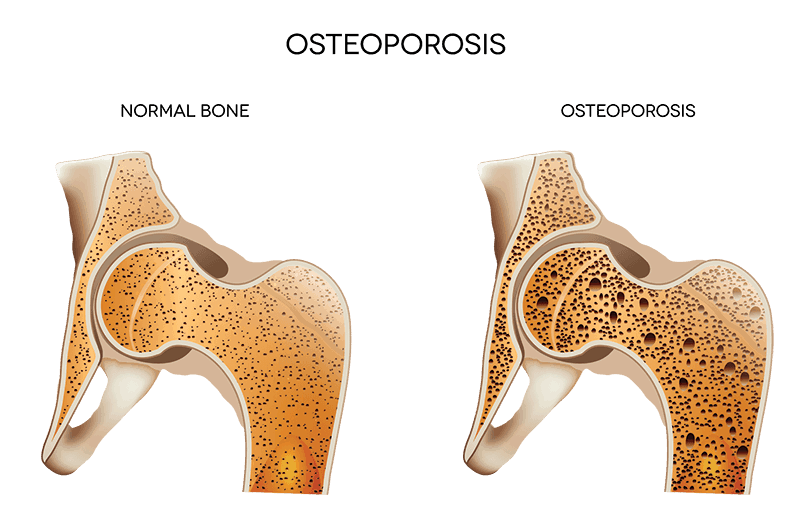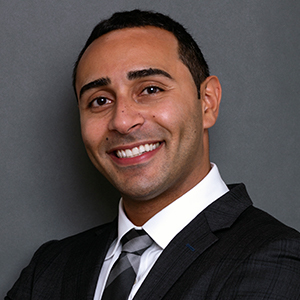What is Osteoporosis? Advice from a Pain Doctor in NY
July 15, 2019
What is Osteoporosis?
If you have ever wondered “what is osteoporosis?”, you are not alone. Though this disease is quite common, many people may not understand its causes and the impact it can have on daily activities. Osteoporosis a condition in which the body reduces its production of bone, and bone density decreases. The most serious consequence of osteoporosis is an increased likelihood of fractures and the pain that accompanies such injuries. Read more to learn about the causes of osteoporosis and how to help you prevent injury.

What Causes Osteoporosis?
The word osteoporosis translates to “porous bones”, which is an excellent answer to the question “what is osteoporosis?” Healthy bodies constantly produce new bone tissue to replace worn out material. However, when you suffer from osteoporosis, the rate of production slows down dramatically. This results in a spongey texture to the interior of the bone with increased fragility. There are a variety of factors that can put you at risk of this disease.

Who is at Risk for Osteoporosis?
Once you understand what is osteoporosis, the next question is usually, “who is at risk?” More than 53 million Americans are currently suffering from this disease, and it can affect both men and women. However, women are at greater risk after menopause, because their estrogen levels decrease significantly. Before menopause, estrogen protects you against osteoporosis.
There are lifestyle factors that can reduce your risk of developing osteoporosis. The most important are eliminating smoking and prioritizing a healthy diet. Consuming appropriate amounts of calcium and vitamin D can go a long way towards prevention. Individuals with eating disorders like anorexia or bulimia are more likely to be diagnosed with osteoporosis, and excessive alcohol consumption can also be a risk.
Low levels of critical vitamins and minerals in your body may increase the likelihood of developing this disease, so make sure you ask your doctor about this. A sedentary lifestyle impacts the health of your bones, and years of inactivity may increase your risk of osteoporosis. Weight-bearing exercise encourages bone growth, and exercise focused on flexibility and balance, such as yoga, you can reduce the risk of falls and subsequent bone fractures.
Some risk factors are outside your control. For example, scientific research indicates that genetics determine up to 75 percent of an individual’s bone density. That means if osteoporosis runs in your family, you are at higher risk of developing the disease yourself. Ethnicity is a factor in osteoporosis. The condition impacts people of Caucasian and Asian descent more frequently than other ethnic groups.
As you get older, your risk of developing osteoporosis increases, as the body naturally reduces its production of bone tissue after the age of 35. People over 5′ 7″ are at greater risk, as are those who weigh 125 pounds or less.
There a several diseases that affect the hormone levels in your body, which can result in reduced bone density. Examples include COPD, cancer, chronic kidney disease, and certain autoimmune diseases. While the conditions don’t directly cause osteoporosis, it can develop as an unfortunate side-effect.
Medications that can add to your risk of Osteoporosis
Medications used to treat other diseases may also impact hormone levels, and some directly affect the production of bone tissue. The following drugs may increase your risk of osteoporosis:
- Corticosteroids and glucocorticoids
- Blood-thinners
- Anticoagulants
- Certain immunosuppressant agents
- Aromatase inhibitors
- Certain vitamin A medications
- Protein-pump inhibitors (PPIs) and other antacids
- Certain antidepressant medications
- Thiazolidinediones
- Thiazide diuretics
- Some chemotherapy medications
- Thyroid hormone
If you have one or more of these risk factors, it is important to discuss the health of your bones with your physician. There may be steps you can take now to delay or eliminate the onset of this disease.
What is Osteoporosis’ Consequences?
Because osteoporosis reduces bone density, bones lose their strength and become more brittle. Compression fractures and degenerative disc disease are increasingly common, and minor falls can become major medical disasters, as bones are far more likely to break. This is particularly true of the bones in the spine, wrists, and hips. Worse still, bones don’t heal as quickly as they once did. In the most severe cases, a simply cough or sneeze can result in a fracture.
When you ask people, “What is osteoporosis?”, they often mention elderly men and women who have a distinct stoop in their posture. This stoop is a direct consequence of osteoporosis’ weakening of the spine. Changes in posture may also occur after fractures in the bones of the spine.
The weakening of bones and associated fractures are associated with on-going pain. In some cases, as with a break, the pain is acute. In other cases, bone pain can be chronic. If you are experiencing pain associated with osteoporosis, it is critical to see a specialized pain doctor in New York or pain doctor in New Jersey as soon as possible.
What Should I Do if I Have Pain Associated with Osteoporosis?
The pain caused by osteoporosis and fractures can be managed effectively when you see a qualified pain doctor for evaluation and treatment. When you visit a pain doctor in NY or pain doctor in NJ, you can expect a series of questions about your family history, your personal medical history, and your lifestyle. Your back pain doctor will use a special DEXA x-ray to definitively diagnose you with osteoporosis. Once your physician has determined you do, in fact, have the disease, you can expect to spend some time getting all of the details you need to understand what is osteoporosis and how it will affect you.
Osteoporosis is incredibly common. Fortunately, non-surgical treatments for knee pain, joint pain, and back pain caused by osteoporosis are increasingly effective. A specialized pain doctor has expertise in the most advanced treatments for pain related to osteoporosis. Your customized plan may include medication, dietary changes, and physical therapy, among other treatment methods.
The physicians at Pain Management Specialists are dedicated to relieving your pain, and they have the experience and expertise required to find a solution that meets your needs. Schedule your consultation today.
Book a Consultation
Scheduling a consultation with one of our pain treatment specialists is one of the best ways to determine the proper solution for pain relief.



















